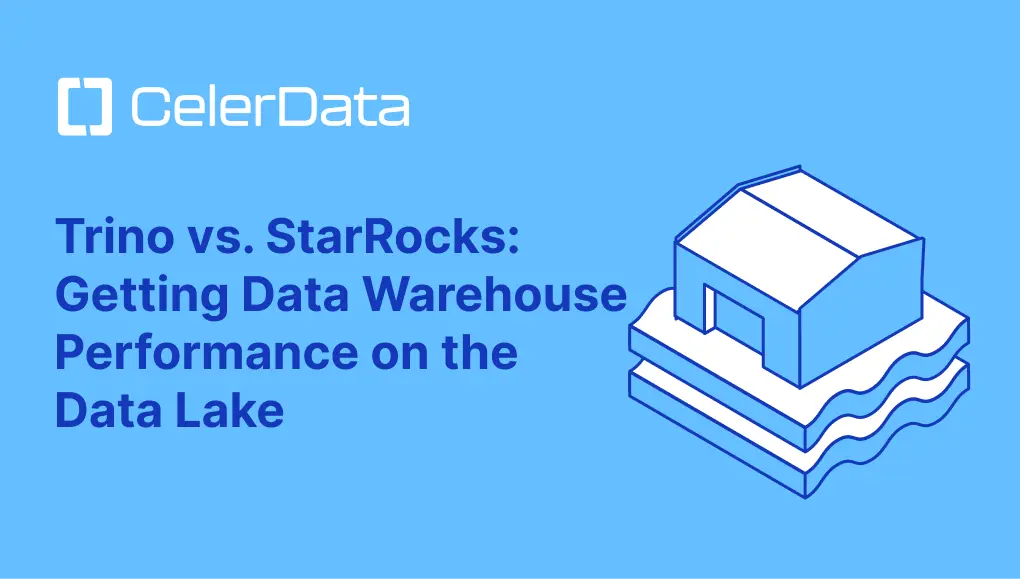
How Organizations Implement Data Democratization

Join StarRocks Community on Slack
Connect on SlackOvercoming Data Silos
Data silos can significantly hinder your organization's ability to achieve its business goals. They obstruct access to valuable data, degrade data quality, and prevent collaboration. By breaking down these silos, you can promote a culture of data sharing and enable strategic decision-making. This section will guide you through identifying and dismantling data silos while fostering a collaborative environment.
Identifying and Breaking Down Silos
Conducting a data audit to identify silos
To begin overcoming data silos, conduct a comprehensive data audit. This process helps you identify where silos exist within your organization. A data audit involves examining your current data management practices and pinpointing areas where data is isolated. By understanding the structure of your data, you can take steps to integrate it across departments.
Implementing cross-departmental data sharing practices
Once you've identified the silos, implement cross-departmental data sharing practices. Encourage departments to share data openly and collaborate on projects. This approach reduces redundant efforts and lowers costs. It also provides a 360-degree view of your data, empowering employees to derive meaningful insights and drive innovation.
Promoting a Culture of Collaboration
Encouraging interdepartmental communication
Promoting a culture of collaboration requires encouraging interdepartmental communication. Facilitate regular meetings and discussions between departments to share insights and data. This practice helps break down barriers and fosters a data management culture where information flows freely. As a result, your organization can position itself for success by leveraging data democratization.
Using collaborative tools and platforms
Utilize collaborative tools and platforms to enhance data sharing and communication. These tools enable employees to access data easily and work together effectively. By integrating technology into your data management strategy, you can streamline processes and boost operational efficiencies. Collaborative platforms also support a data-driven culture, allowing your organization to harness the power of data democratization.
By addressing data silos and promoting collaboration, you empower your organization to thrive in a data-driven world. Data democratization not only enhances decision-making but also drives business growth and innovation. Embrace these strategies to unlock the full potential of your data and foster a culture of collective intelligence.
Ensuring Effective Data Management and Governance
In the journey toward data democratization, effective data management and governance play a pivotal role. You must establish clear policies and leverage technology to ensure that data remains accessible, accurate, and secure. This section will guide you through the essential steps to achieve robust data governance and management.
Establishing Clear Data Governance Policies
Defining roles and responsibilities
To maintain order in data democratization, you need to define roles and responsibilities clearly. Assign specific tasks related to data access, management, and security to individuals or departments. This approach fosters accountability and ensures that data integrity is maintained. By having designated data stewards, you can oversee data compliance and integrity within their domains.
Implementing data quality standards
Data quality is crucial for reliable insights. Implement rigorous checks and balances to guarantee data accuracy and reliability. Regular validation and cleaning processes help maintain high data quality. By ensuring that your data is trustworthy, you empower employees to make informed decisions confidently.
Leveraging Technology for Data Management
Utilizing data management software
Technology plays a vital role in data governance. Utilize data management software to streamline processes and enhance data accessibility. These tools help you organize, store, and retrieve data efficiently. By integrating such software into your strategy, you can ensure that data democratization aligns with your organization's goals.
Automating data processes
Automation is key to efficient data management. Automate repetitive data processes to save time and reduce errors. Automation allows you to focus on strategic tasks while ensuring that data flows seamlessly across departments. This approach supports a data-driven culture and enhances operational efficiency.
By establishing clear data governance policies and leveraging technology, you create a solid foundation for data democratization. These strategies ensure that data remains accessible, accurate, and secure, empowering your organization to thrive in a data-driven world. Embrace these practices to unlock the full potential of your data and foster a culture of informed decision-making.
Decentralization and Empowerment
Decentralization in data democratization empowers you to make informed decisions. By setting clear goals and objectives, you align data democratization with your business goals. This alignment ensures that data initiatives support your organization's overall strategy.
Setting Clear Goals and Objectives
Aligning data democratization with business goals
To effectively align data democratization with your business goals, start by identifying the key objectives of your organization. Consider how data can support these objectives. For instance, if your goal is to enhance customer satisfaction, focus on using data to understand customer preferences and improve service delivery. By aligning data democratization with your business goals, you ensure that data initiatives contribute to your organization's success.
Measuring success through key performance indicators
Measuring success is crucial in any data strategy. Establish key performance indicators (KPIs) to track the progress of your data democratization efforts. These KPIs should reflect the impact of data on your business goals. For example, you might measure the increase in data-driven decisions or the reduction in time spent on data retrieval. By regularly evaluating these KPIs, you can assess the effectiveness of your data strategy and make necessary adjustments.
Optimizing User Adoption
Optimizing user adoption is essential for successful data democratization. You need to ensure that employees are equipped and motivated to use data effectively.
Providing training and support
Training and support play a vital role in empowering employees. Offer comprehensive training programs to enhance data literacy across your organization. According to a survey, 77% of business leaders are willing to pay a higher salary for candidates with data literacy skills. This highlights the importance of investing in training. Provide ongoing support to address any challenges employees may face. By equipping your team with the necessary skills, you foster a culture of data-driven decision-making.
Encouraging feedback and continuous improvement
Encouraging feedback is crucial for continuous improvement in your data strategy. Create channels for employees to share their experiences and suggestions. Use this feedback to refine your data democratization efforts. By actively involving your team in the process, you build a sense of ownership and commitment. This approach not only enhances user adoption but also drives innovation within your organization.
Building a Data-Driven Culture
Creating a data-driven culture is essential for successful data democratization. You need to focus on enhancing data literacy and recognizing data usage within your organization. These steps will help you build a robust culture where data becomes a central part of decision-making.
Encouraging Data Literacy
Offering data literacy programs
Data literacy is the foundation of a data-driven culture. You should offer comprehensive data literacy programs to your employees. These programs teach them how to interpret and use data effectively. By improving their data skills, you empower them to make informed decisions. According to industry insights, only 20% of companies have successfully developed a data culture. This highlights the importance of investing in data literacy to overcome cultural challenges.
Promoting data-driven decision-making
Promoting data-driven decision-making is crucial. Encourage your team to rely on data when making decisions. Provide them with the tools and resources they need to access and analyze data. This practice fosters a culture where data becomes an integral part of every decision. As a result, your organization can achieve better outcomes and drive innovation.
Recognizing and Rewarding Data Usage
Implementing incentive programs
Recognizing and rewarding data usage motivates employees to embrace data democratization. Implement incentive programs that acknowledge employees who effectively use data in their roles. These programs can include bonuses, awards, or public recognition. By rewarding data-driven behavior, you encourage others to follow suit and contribute to a data-driven culture.
Celebrating data-driven successes
Celebrating data-driven successes reinforces the importance of data in your organization. Share stories of how data has led to successful outcomes. Highlight the impact of data-driven decisions on business growth and innovation. By celebrating these achievements, you inspire others to leverage data in their work. This approach strengthens the culture of data democratization and collective intelligence.
Building a data-driven culture requires a commitment to data literacy and recognition of data usage. By focusing on these areas, you create an environment where data democratization thrives. Your organization can then harness the full potential of data to drive success and innovation.
Real-World Examples of Data Democratization
Case Study: IBM
Overview of their data democratization journey
IBM embarked on a transformative journey to democratize data across its vast organization. By making data accessible to all employees, IBM aimed to enhance decision-making and foster innovation. The company implemented a robust data management strategy that broke down silos and promoted a culture of collaboration. This approach empowered employees to access and utilize data effectively, leading to improved operational efficiency and business growth.
Key strategies and outcomes
IBM's key strategies included the implementation of data catalogs and marketplaces, which broadened data access. They also introduced self-service tools that stimulated the generation of data-driven insights. As a result, IBM experienced significant improvements in decision-making processes and innovation. The democratization of data allowed employees to contribute to the company's success by leveraging data for better insights and outcomes.
Lessons Learned from Industry Leaders
Common challenges and solutions
Industry leaders like Pandora and Telia have faced common challenges in their data democratization efforts. One major challenge is overcoming data silos, which can hinder access to valuable data. To address this, organizations conduct data audits to identify silos and implement cross-departmental data sharing practices. Another challenge is ensuring effective data management and governance. Companies like EQT Group have established clear data governance policies and leveraged technology to streamline data processes.
Best practices for successful implementation
Successful data democratization requires a commitment to building a data-driven culture. Organizations should focus on enhancing data literacy through comprehensive training programs. By offering data literacy programs and encouraging feedback, companies can optimize user adoption and foster a culture of continuous improvement.
The Data Innovation Summit showcases how companies like Telia have successfully implemented data democratization. By breaking down barriers to data access, empowering employees, and fostering innovation, these organizations redefine their dynamics and achieve remarkable outcomes. Embracing data democratization allows you to unlock the full potential of your data, transforming your organization into a data-driven powerhouse.
Conclusion
To implement data democratization effectively, you should focus on several key strategies. First, break down data silos to ensure that data flows freely across departments. This fosters a culture of collaboration and innovation. Next, establish clear data governance policies to maintain data integrity and security. Leverage technology to streamline data management processes. By doing so, you empower individuals to access and utilize data effectively, leading to informed decision-making.
Overcoming challenges is crucial. You must foster a data-driven culture by enhancing data literacy and recognizing data usage. This approach empowers employees to make data-empowered decisions, driving growth and agility. By embracing data democratization, you unlock the full potential of your data, transforming your organization into a data-driven powerhouse.

.webp)

